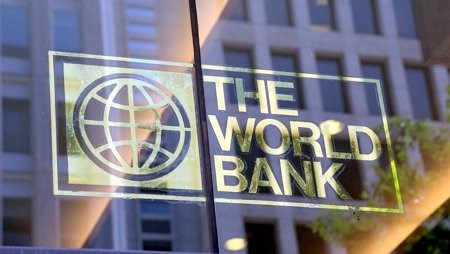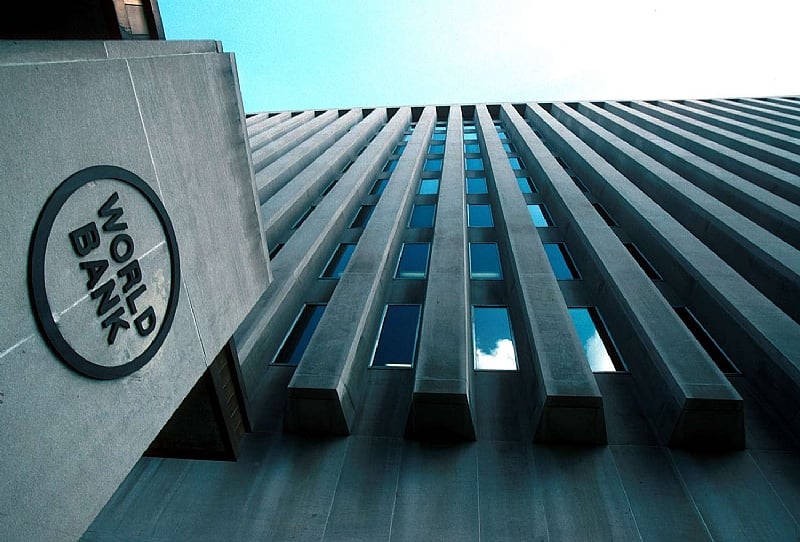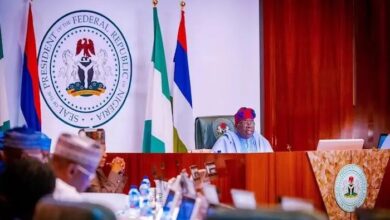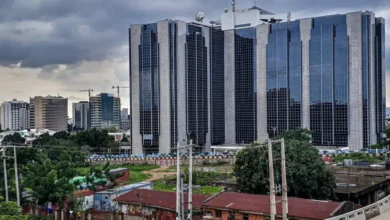
The World Bank has reported that Nigeria’s economy is performing well, recording a growth rate of 3.4 percent in 2024 despite high inflation.
Taimur Samad, the Acting Country Director for Nigeria at the World Bank, made this announcement during the presentation of the Nigeria Development Update (NDU) in Abuja on Monday.

According to Samad, the positive trajectory of Nigeria’s economy is a result of the government’s sustained reform efforts.
He pointed to key reforms such as a more stable exchange rate, increasing foreign reserves, and improved fiscal management as evidence of the progress being made.
ALSO READ: Britain pledges to work with Nigeria on new immigration rules
Samad explained that better fiscal conditions were largely due to increased federation revenues, which have bolstered the country’s economic outlook.
He further noted that economic growth accelerated to 4.6 percent year-on-year in the final quarter of 2024, bringing the full-year growth to 3.4 percent—the highest annual growth rate since 2014, excluding the post-COVID rebound in 2021–2022.
Additionally, the fiscal deficit shrank from 5.4 percent of gross domestic product (GDP) in 2023 to 3.0 percent of gross domestic product (GDP) in 2024.
This positive trend was driven by a sharp rise in federation revenues, which increased from N16.8 trillion in 2023, 7.2 percent of GDP, to an estimated N31.9 trillion in 2024, 11.5 percent of GDP, he said.
However, Samad noted that significant challenges persist, particularly the continued high inflation, which reached 24.23 percent in March 2025.
- FOLLOW US ON INSTAGRAM: Get the most important news on your social media feed
- FOLLOW US ON FACEBOOK: Get the most important news on your social media feed
- FOLLOW US ON X: Get the most important news on your social media feed
He underscored the need for the Central Bank of Nigeria to uphold strict monetary policies to sustain economic stability.
However, it was clear that sustained momentum and further reforms are necessary to drive growth and expand economic opportunities, he added.
Alex Sienaert, the World Bank’s Lead Economist for Nigeria, offered additional perspectives, highlighting the need to closely monitor revenue gains from the removal of fuel subsidies and to avoid overly optimistic budget projections for 2025.
He also stressed the urgency of expanding the targeted cash transfer programme to support vulnerable groups.
Sienaert proposed several measures to achieve macroeconomic stability, including reducing governance costs and accelerating economic growth.
He advocated for a growth model driven by the private sector and enabled by the public sector, aimed at addressing key infrastructure deficits, particularly in electricity and transportation, while promoting a competitive and open business environment.
His remarks follow recent comments by Akinwumi Adesina, President of the African Development Bank (AfDB), who stated that with Nigeria’s current GDP per capita at $824, citizens are worse off than they were at independence in 1960.
In response, presidential spokesperson Bayo Onanuga dismissed Adesina’s assertion.
He said, “His ignorance and perhaps bias against any talk on the economy as it relates to this government.”
READ MORE: DIASPORA LENS




